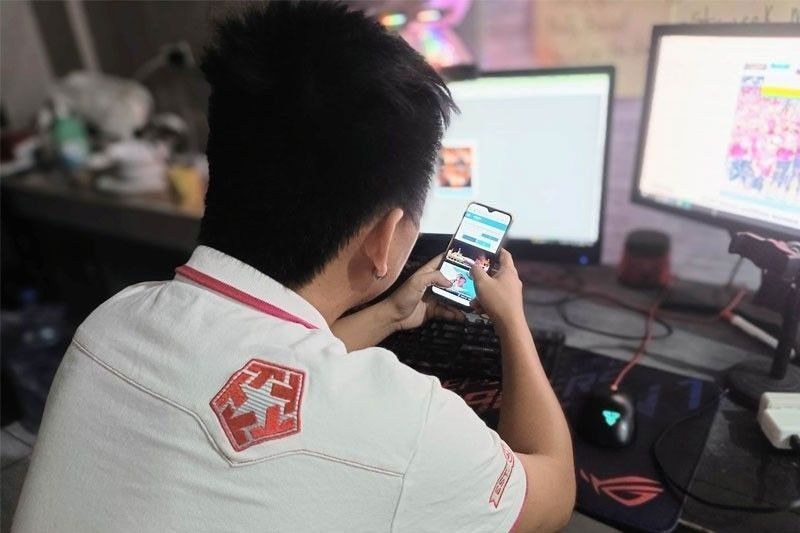Special report: Connectivity cost in Philippines weighs on consumer pockets (Conclusion)

MANILA, Philippines — Jhoanna Ballaran, a Manila-based journalist working for a Japanese news agency, dedicates almost half of her day going through the internet.
As a reporter, Ballaran has to monitor national issues all the time, requiring her to stay online in messaging channels like Viber and WhatsApp to keep herself up to speed.
Monthly, Ballaran allots P2,000 for her consumable data in phone and P1,500 for her broadband plan at home – prices that she finds too expensive considering the service outages every now and then.
Such problems on price and quality could be resolved if legislators lift the barriers to entry in the telco business, according to Better Internet PH. The group campaigns for inclusive access to connectivity by proposing reform proposals for policymakers to consider.
Better Internet PH lead advocate Mary Grace Mirandilla-Santos said internet bundles would remain expensive as long as the Philippines lacks middle mile infrastructure. These assets pick up the data requests and pass them on to backbone networks for processing.
Simply put, middle mile infrastructure serves a critical role in how the internet works, and Santos said investment limits in building these facilities contribute to the high cost of connectivity.
The Philippines attained a dismal 46 percent in the latest resilience index of the Internet Society wherein the consistency and reliability of connectivity in every country are measured.
Citing data from the International Telecommunication Union (ITU), the index reported that only half of the population is within 10 kilometers of a fiber network, underscoring the deficit in cable deployment nationwide.
Santos attributed this infrastructure gap to the existing requirements for acquiring and operating telco assets.
For instance, to manage a middle mile infrastructure in the Philippines, one must get a legislative franchise from Congress and a certificate of public convenience and necessity from the National Telecommunications Commission.
In the fixed broadband segment, operators must secure provisional authority from every locality where they plan to install fiber cables. In mobile, only franchised telcos are granted access to the radio spectrum for the provision of internet service.
“In any industry, limited competition contributes to higher consumer prices, among other effects, and this seems to be the case for both wired and wireless connectivity in the Philippines,” Santos told The STAR.
Worse, the lack of telco players is making it challenging for the Marcos administration to deliver one of its flagship programs, the Broadband ng Masa.
Under this, the government aims to set up free internet in as many public spaces as possible, with the program reaching 8,184 sites covering 123 cities and 538 municipalities as of Oct. 31.
Documents obtained by The STAR showed that in several projects under Broadband ng Masa, the government received as few as a single bid due to lack of competition. For one, there were seven responses for the contract to serve internet access in isolated towns via low earth orbit satellites.
However, the government received responses from only two suppliers for the project that would bring internet service in state universities and colleges. Worse, it entertained just one bidder for the deployment of connectivity assets in Antique.
Information Assistant Secretary Renato Paraiso said that a number of projects under Broadband ng Masa are hindered by limited competition arising from the lack of players.
“Some projects, such as Antique, had only one supplier participating in the bidding and could be an indicator of limited competition in that area,” Paraiso told The STAR.
In spite of this, the government is pushing to expand the coverage of Broadband ng Masa, hoping that the program somewhat bridges the digital gap in the countryside.
With this business environment in mind, Better Internet PH wants President Marcos to certify as urgent the passage of the proposed Open Access in Internet Services Act. The measure intends to relax the barriers and slash the costs for becoming an internet service provider.
In particular, the proposal seeks to limit the need for a legislative franchise to telcos who operate international cable landing stations. This way, the process to become an internet service provider will be simplified with the objective of attracting new players.
The House of Representatives approved its version of the bill last year, but the Senate has yet to make progress even at the committee level.
“Without a substantial policy change to open the market to competition at different segments of the internet, the affordability of Philippine internet will continue to suffer,” Santos said.
Further, Opensignal principal analyst Sam Fenwick underscored the importance of moving away from fossil fuel dependence, citing the urgency for telcos to adopt renewable energy to cut their operational costs and, eventually, service rates.
Wireless leader Smart Communications Inc. is increasing the use of solar energy in powering up its cellular sites as part of efforts to integrate sustainable solutions in the business. Mobile giant Globe Telecom Inc. is also shifting its offices one by one to renewable sources.
As internet assets rely on energy to run, power comprises up to 40 percent of telco expenses and as much as 90 percent of network spending. As such, Fenwick believes that connectivity prices in the Philippines will go down if electricity costs fall as well.
“If the government were to work with operators to accelerate and encourage this approach, then this would help keep prices down in the long run,” Fenwick told The STAR.
The ITU, the agency tasked by the United Nations to promote universal access, believes that for basic internet to be affordable, it should cost below two percent of the average wealth of a citizen measured as gross national income (GNI) per capita.
In the Philippines, broadband and mobile internet average 11.26 percent and 1.98 percent of per capita GNI, respectively, and they rank as one of the highest costs in Southeast Asia.
In its policy brief for 2022, ITU director Cosmas Luckyson Zavazava reminded countries how important the internet is in this day and age. He said the pandemic hastened the adoption of digital platforms worldwide, and this development demands everyone to gain access to the internet.
“Connectivity has become a necessity, but for many it remains to be a luxury. High costs prevent millions from using the internet or using it to its full potential,” Zavazava said.
- Latest
- Trending




























